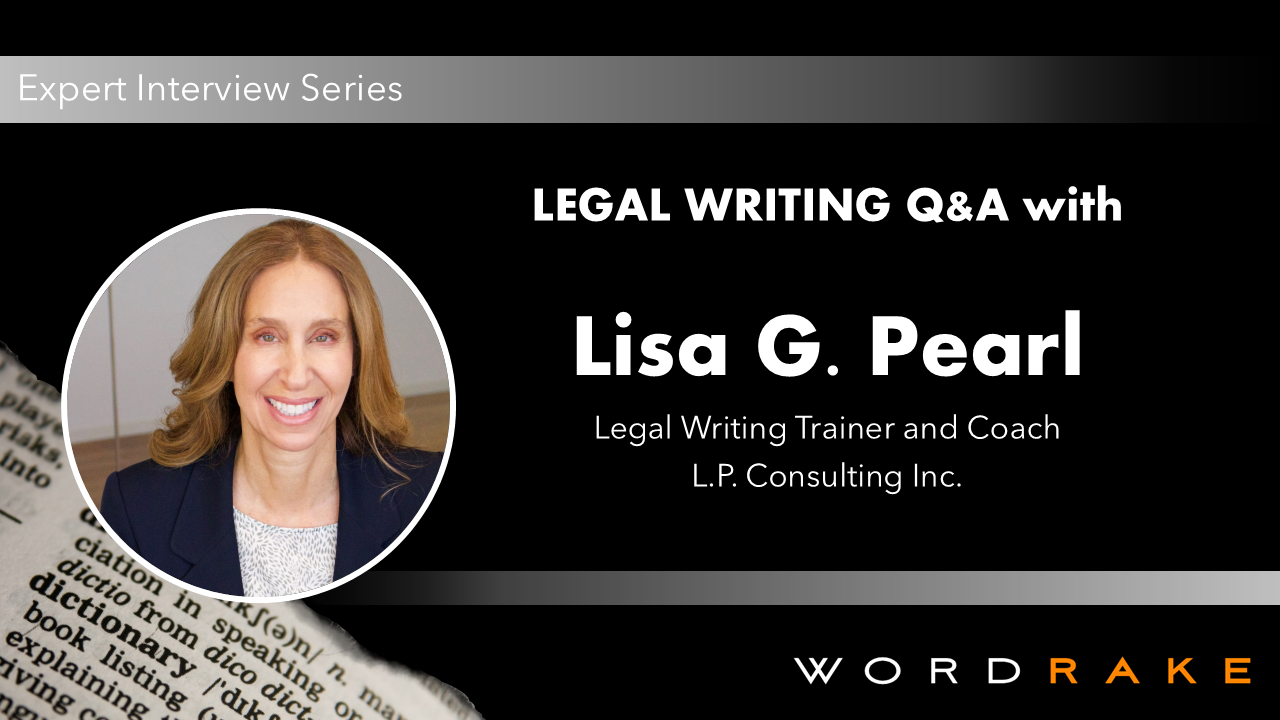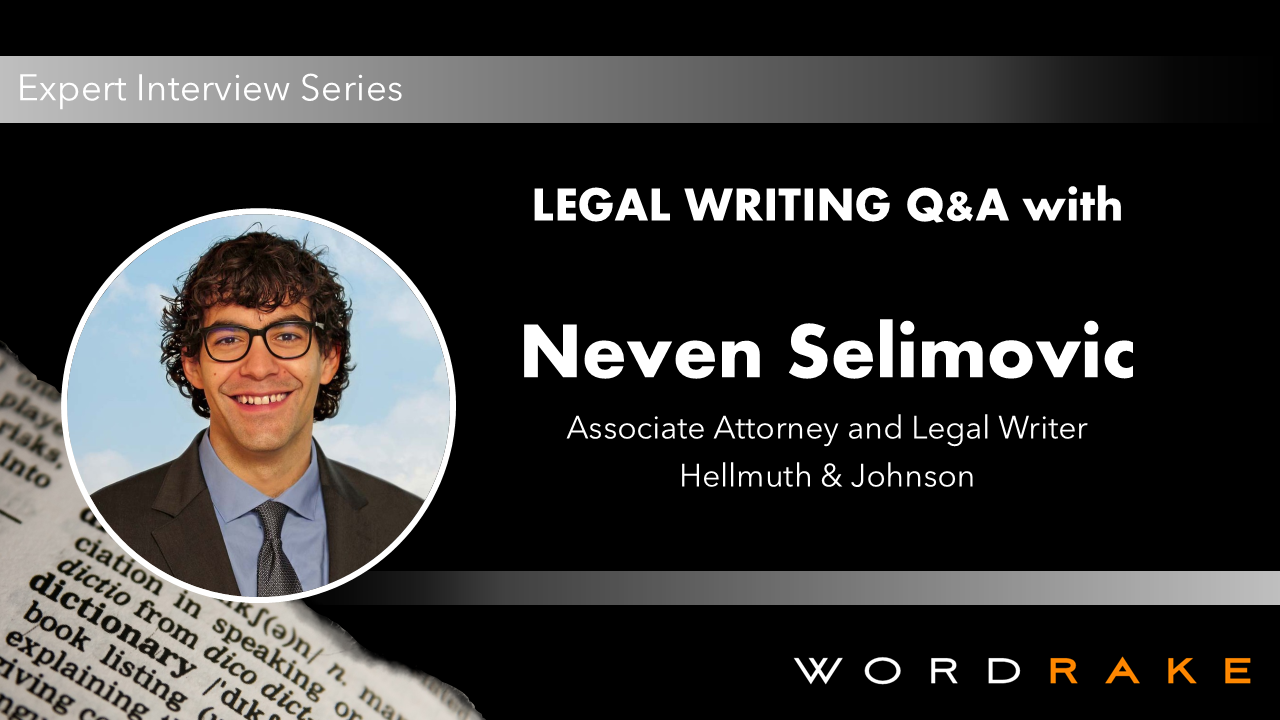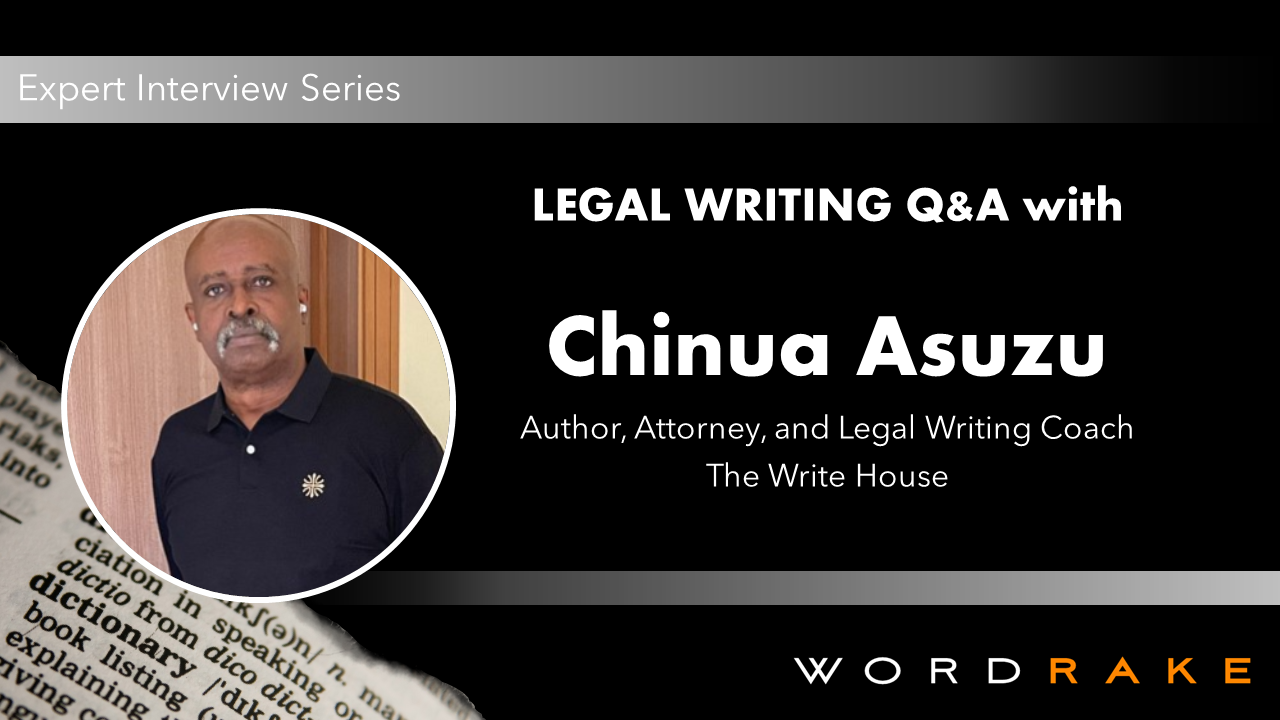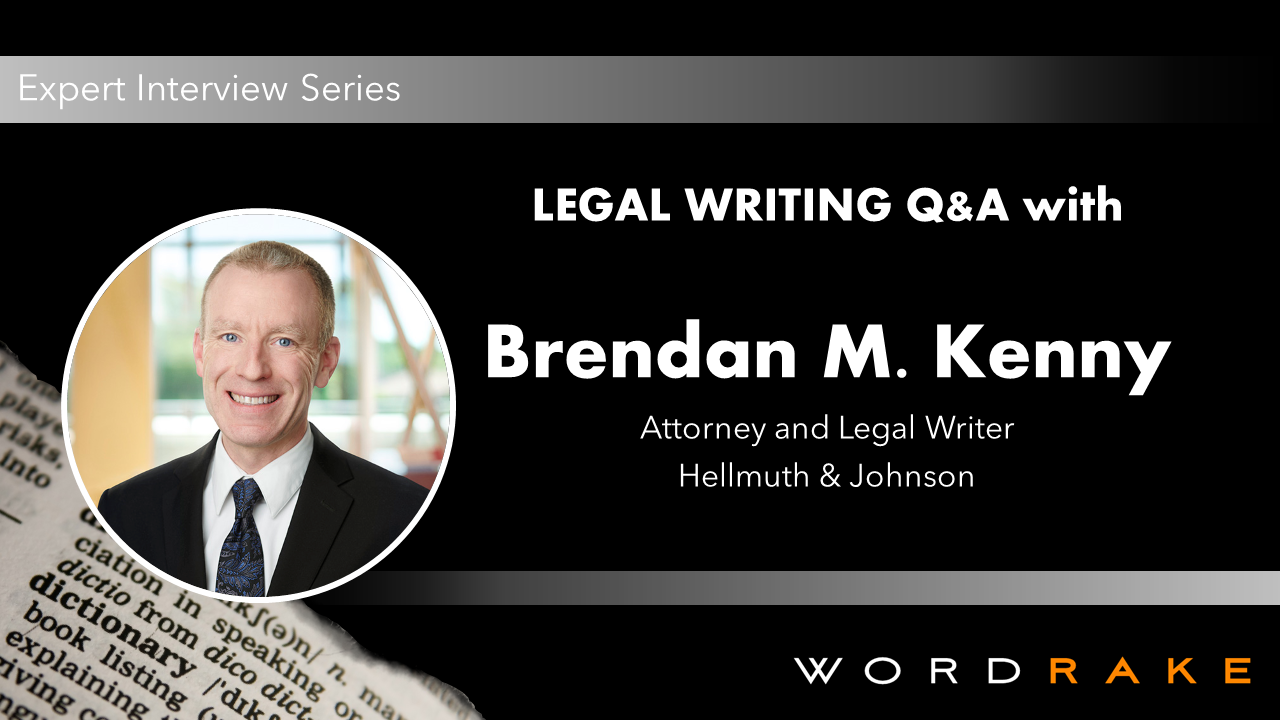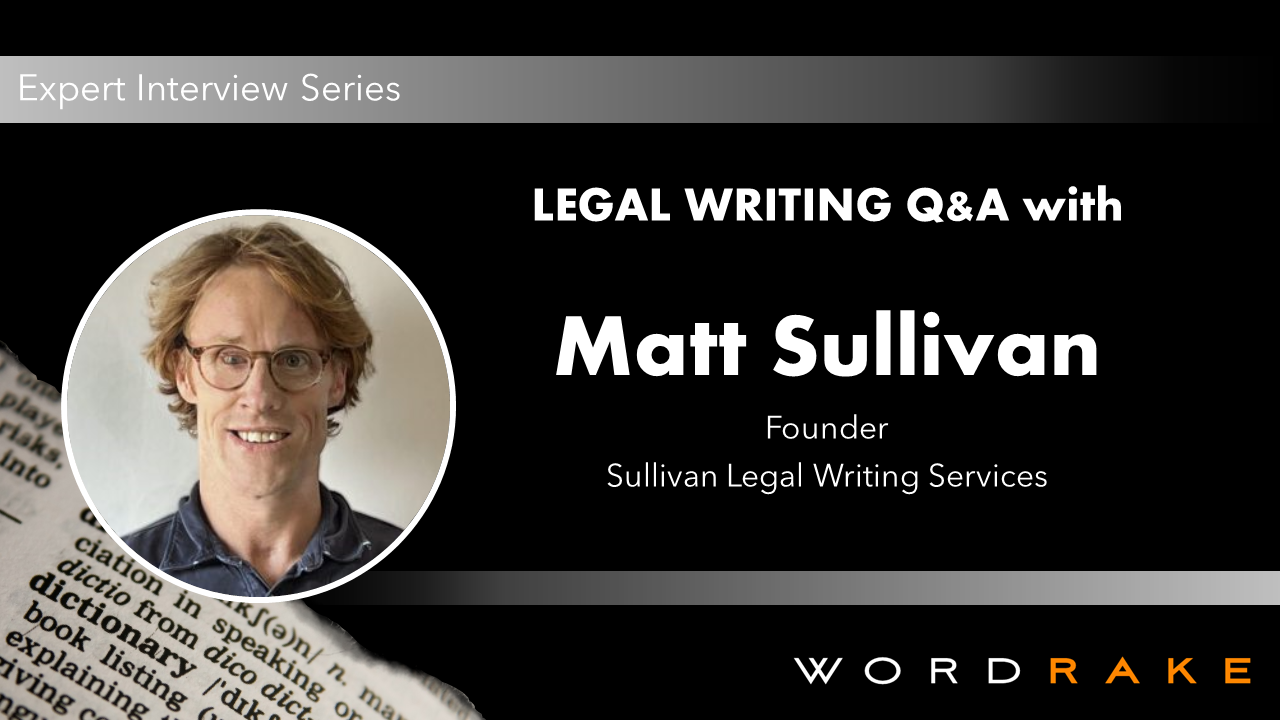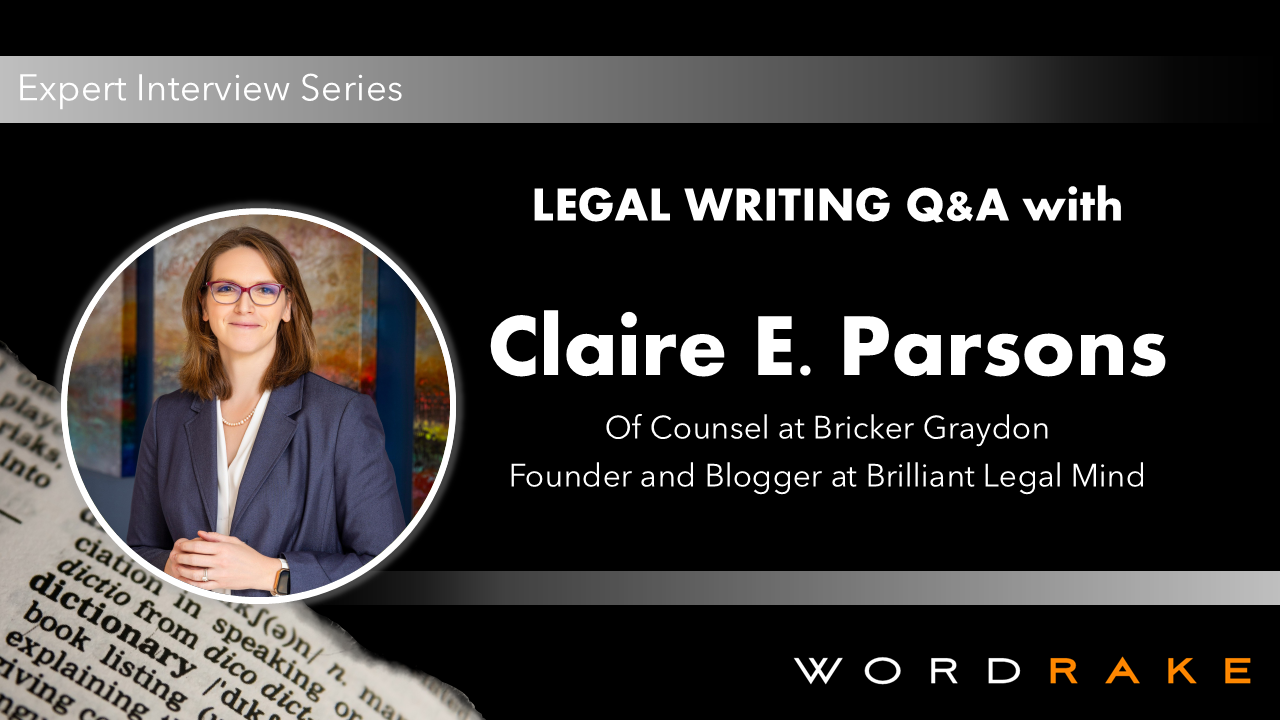Not everyone can teach. Senior partners may be expert legal writers, but it doesn't mean they all have the time, patience, or skill to help associates learn their craft. That's where legal writing coaches and trainers like Lisa Pearl come in. She talks about her writing and teaching process below.
Continue readingWordRake Staff
Recent Posts
Tech tools, especially AI tools are a hot topic in the legal writing field, and a lot of legal writers are anxious about what they mean for the future. Not associate attorney and legal writer Neven Selimovic: he believes in earning and using every tool he can to bring clients the best possible outcome. He shares his strategies and philosophy in this interview.
Continue readingWhat makes good legal writing? Clarity and simplicity! Attorney and legal writing coach Chinua Asuzu practices what he teaches. Even in this legal writing interview, he uses visual clues like lists and bullet points to make his meaning easy to read and understand. He shares his best practices with us.
Continue readingDoes your firm have a dedicated legal writing team? If you have the resources, it might be worth considering! Brendan M. Kenny from Hellmuth & Johnson works as a litigator himself, and as a legal writer for other members of the practice. This gives him and his colleagues in the legal writing group the opportunity to explore and perfect the use of new technologies to support their writing. He shared his experience with us in this expert interview:
Continue readingNot everyone feels confident in their writing, or has time to tackle every brief themself. Some attorneys turn to AI sources to help in those moments, but with more firms making rules about whether and how AI can be used in practice, that’s not always an option. That’s where legal ghostwriters like Matt Sullivan come in. He shared some of his professional experience with us.
Continue readingWhen you’re in the middle of research for your senior thesis, you know your topic so well that figuring out where to start when discussing it feels impossible. You’ve spent months or years exploring a topic to the point you can write and talk about it for hours. But a thesis that reads like an over-eager, disjointed monologue does not interest a reader or help her understand (and love) your topic. Letting the ideas tumble out of your head and onto paper without culling and organizing information will create more work for you—something no one wants, especially with tight deadlines.
Continue readingApplying for college, fellowships, and graduate school is stressful; it can be daunting to select potential schools, take standardized tests, and secure letters of recommendation. The choices you make now will determine your future.
Continue readingYour thesis is the cornerstone of your degree. A thesis demonstrates a commitment to your field of study; you want to contribute to your areas of interest, not just learn about them. It encapsulates the years of work you’ve put into your degree. But it’s also one of the main sources of stress for your final year of your program.
Continue readingA successful letter of recommendation can open doors and make a lasting impression. A quick Internet search will tell you what to put in a letter of recommendation; but it is just as important to know what to leave out.
Continue readingLaw is a high stress field. Lawyers finish school and descend into a meatgrinder in legal practice. The fast pace, high stakes, and need for perfection can overwhelm even the most skilled attorney. When clients are depending on you, every word counts. So how can a legal writer balance their responsibilities and their basic wellbeing? Attorney, author, and blogger Claire E. Parsons has faced these challenges head on, and has advice for other lawyers about their writing and their wellness.
What is your role and how did you get to where you are today?
I feel fortunate to have multiple roles at this stage of my career. I am as surprised by this as I am pleased about it. For my law practice, I am Of Counsel at Bricker Graydon in the Cincinnati area. I have been practicing for 15 years in the areas of school law, employment law, and litigation. I started in a smaller insurance defense firm with a strong focus on local government work. Though I started in civil litigation, I soon was asked to learn special education to meet client needs. I did that and quickly became known for my work and then moved more into general school law. I am fairly new at my current firm but I was drawn to the firm’s strong public sector and school law presence.
Continue reading
